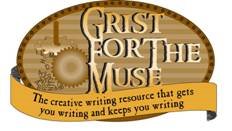Here is an interesting site that manages to breakdown the myriad of character, plot, setting, dialogue "tropes" or building blocks of fiction in a a giant wiki-like format. The problem with a trope is that many times it is used way too often.
The site defines a trope in the following way:
Tropes are devices and conventions that a writer can reasonably rely on as being present in the audience members' minds and expectations. On the whole, tropes are not clichés. The word clichéd means "stereotyped and trite." In other words, dull and uninteresting.
Have you ever wondered when you watch a family sitcom or drama why you feel like you've seen this episode before? Probably because you have. The plots of these shows often have similar issues and resolutions. Such as the favorite plot staple: The Evil Twin. Or why Phil Dunphy on Modern Family reminds you of another dad in some other show? Well it turns out that there is a trope for that, the Bumbling Dad. And the trope extends into other mediums such as films, literature, and comics.
There are even music tropes. Ever notice that the you can count on certain songs to be used to promote movies, introduce certain characters or sequences of events? Such as:
"Walking On Sunshine" by Katrina And The Waves was used in pretty much every trailer for family comedies in the 1990s and 00s.
"Who Let The Dogs Out" will be used in any children's movie featuring talking dogs, and it will be used in a scene where the aforementioned canine's escape from a pet pound/locked room/generally do something cool that involves knocking down something or someone.
This is a fascinating site where you can spend hours just browsing through all of the different tropes. (Which is one of the reasons this post is a bit later than I intended.) The site illustrates each trope with dozens of examples of it in many different mediums. The writers of the site are also careful about not revealing spoiler information by hiding it by changing the color of the text to white on a white background, so you can only see the spoiler info if you highlight the white text.
Muse Review Website Rating Scale: * - SPAM is more enjoyable and entertaining; ** - Content not fit for a link farm; *** - An OK site, probably won't be back here often; **** - Good resource, bookmark and visit often; ***** - An essential resource to consult daily.

3 comments:
This is a brilliant site, but not particularly relevant to literature. Frankly, I look at tropes in a negative way .. and partly as a result of commercial pressures in TV and film. It is a more helpful guide to pop culture than to storytelling forms, but it is certainly worthwhile to spend a day or two (or three) becoming familiar with most of the tropes which have already been done to death (so you know to avoid falling into these pits).
On the other hand, a competent storyteller can give anything a fresh new feel.
Robert Nagle, aka
Idiotprogrammer .
True. This is focused on TV and Films, with some references to literature. I think TV tropes is good for showing generic plot points character types, and conventions, since everyone has different tastes and interests and probably need different examples to use as illustrations for these conventions.
What does this say about us writers then? Especially those who work in TV and film? Have these commercial pressures made tropes critical for any kind of success?
I don't think I agree with the definition that TV tropes provided that says "tropes are not clichés." The longer I look at the site, the more I believe that these are indeed clichés and should be avoided.
That being said as you said a competent storyteller can twist one of these old clichés presented in a new light. Because as we all know, there are no new stories, just new twists on old tales.
Thank you for your comment, Robert.
Post a Comment